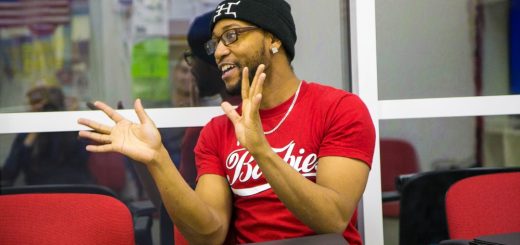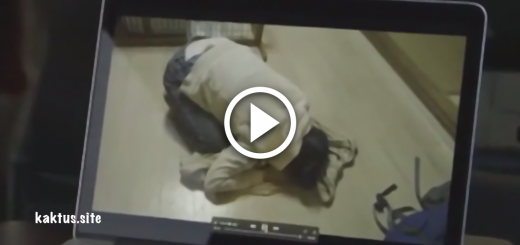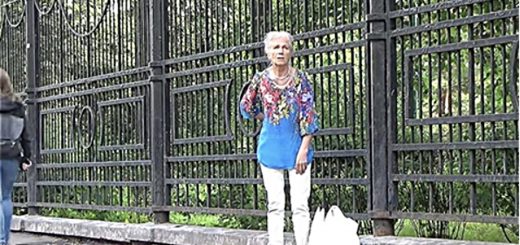«Ladies and gentlemen, I’m proud to announce the launch of the Austin Mitchell Foundation for Working Families’ Education.» The applause was thunderous.
Mayor Johnson stepped up to shake Trevor’s hand. «What inspired you to start this scholarship program?» she asked into the microphone.
Trevor’s eyes found mine in the crowd. «That man right there, Austin Mitchell. The one who was mocked for building this city with his hands. The one who worked two jobs so I could have one. The man who taught me that real worth isn’t measured in bank accounts or degrees; it’s measured in integrity, sacrifice, and love.»
I felt tears sting my eyes as three hundred people rose to their feet in applause. For the first time in my life, I felt like the richest man in the room.
After the ceremony, Trevor and I walked along the Chicago Riverwalk, the city lights dancing on the water like scattered diamonds. «You didn’t have to name it after me,» I said quietly.
He stopped walking and turned to face me. «Dad, everything I am, everything I built, exists because you believed in me when nobody else would. When Mom left, when kids at school made fun of my secondhand clothes, when guidance counselors said I should consider ‘realistic’ career options, you never stopped believing.»
I thought about that scared single father I’d been twenty-two years ago, wondering how I’d ever raise a boy on my own. Looking at Trevor now—successful, principled, strong—I realized I hadn’t just raised a son. I’d raised a man who knew the difference between being rich and having worth.
«Besides,» Trevor grinned, «I figure it’s about time the Hawthorne family learned what a real legacy looks like.»
The foundation would go on to provide full scholarships to over five hundred children from working-class families. But that night, walking along the river with my son, I knew I’d already received the greatest return on investment a father could ask for.
Two years passed, and life settled into a rhythm I’d never dared to dream of. Trevor’s company continued to grow, with offices now in New York and San Francisco. The foundation was thriving, sending kids from backgrounds like ours to colleges across the country.
And me? I still lived in my little apartment in Rogers Park, still drove my old Ford F-150, still watched Cubs games with Mrs. Rodriguez upstairs. But I wasn’t the same man who’d walked into that wedding reception with his ill-fitting suit and wounded pride. I carried myself differently now, not because of money, but because I’d learned that a man’s worth isn’t determined by what others think of him. It’s determined by what he builds, what he gives, and who he raises.
Then came the phone call that would test everything. «Dad, you need to see something,» Trevor’s voice was tight when he called me that September morning. «Turn on Channel 7 News.»
I grabbed my remote with shaking hands. There on the screen was a familiar face: Dr. Richard Hawthorne, standing outside the Federal Building in downtown Chicago, flanked by lawyers and cameras. «Charges of insurance fraud and tax evasion spanning five years,» the reporter was saying. «The Hawthorne family faces potential prison time and millions in penalties. This comes just two years after their hospitality empire was acquired in a hostile takeover by cybersecurity mogul Trevor Mitchell.»
I muted the TV and called Trevor back. «How are you handling this?»
There was a long pause. «Honestly, Dad? I feel… empty. I thought I’d feel vindicated, you know? But watching them fall apart like this, seeing Stephanie’s kids affected by their parents’ choices? It just makes me sad.»
That’s when I knew I’d raised him right. Revenge might have been sweet for a moment, but real strength, real character, meant knowing when to stop fighting and start healing. «Son,» I said quietly, «maybe it’s time to think about what comes next. What do you want to build instead of what you want to tear down?»
Five years after that disastrous wedding, I found myself in another fancy ballroom, but this time, everything was different. The Austin Mitchell Foundation’s annual gala was being held at the Palmer House, with over eight hundred guests celebrating our scholarship recipients.
As I looked around the room, I saw faces that told a story I was proud to be part of. Maria Santos, whose mother cleaned office buildings, was now a resident at Johns Hopkins. David Kim, whose father drove a taxi, was finishing his MBA at Wharton. Sarah Williams, whose grandfather had worked construction alongside me, was starting her own tech company.
Trevor took the stage to thunderous applause. At thirty, he’d grown into the kind of man I’d always hoped he’d become: successful, yes, but more importantly, generous and grounded.
«Five years ago,» he began, «my father and I walked out of a wedding where people laughed at us for who we were. Tonight, we celebrate not what divides us but what unites us: the belief that every child deserves a chance to dream big, regardless of where they come from.» He paused, scanning the crowd. «And I have an announcement.»
«The foundation is expanding. We’re not just funding college educations anymore. We’re creating apprenticeship programs, trade school scholarships, and small business loans for working families. Because success isn’t just about getting a degree; it’s about building a life of purpose and dignity.»
The applause was deafening. But what moved me most was what I saw in the back corner of the room. Stephanie Hawthorne, now Stephanie Walsh, remarried to a high school teacher, was quietly applauding. Her children, a boy and a girl around eight and ten, sat beside her. She caught my eye and nodded, not in defeat, but in what looked like respect.
























































